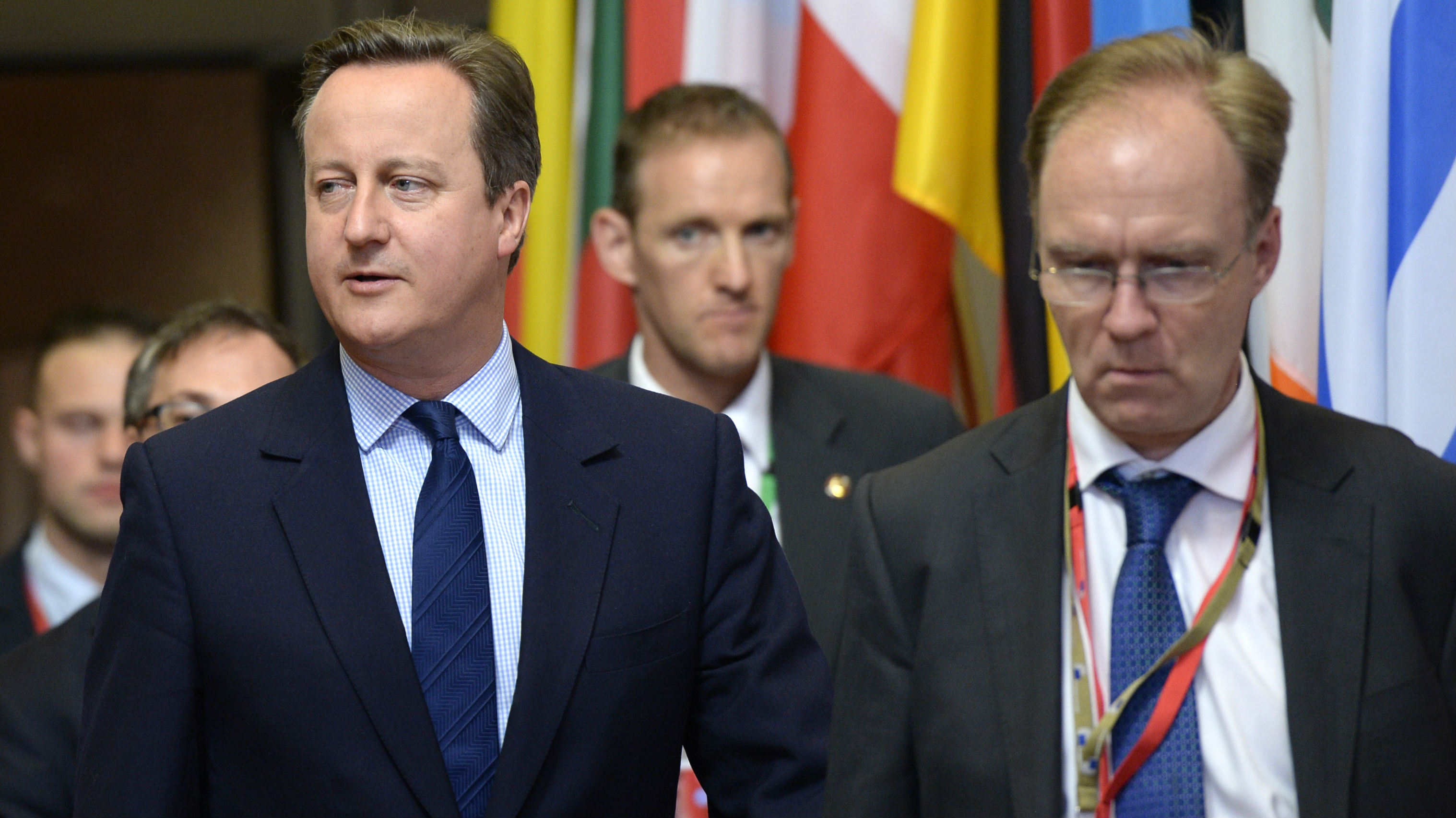Sir Ivan Rogers: Diplomat's departure means Brexit 'chaos'
Former ambassador to the EU attacks 'muddled thinking' in resignation email to staff in Brussels

A free daily email with the biggest news stories of the day – and the best features from TheWeek.com
You are now subscribed
Your newsletter sign-up was successful
The government's Brexit plans have been thrown into disarray following the unexpected resignation of the UK ambassador to the EU.
Sir Ivan Rogers "had been expected to play a key role in Brexit talks", the BBC reports, and was due to remain in his post until November.
However, he gathered his staff together yesterday to inform them he had handed in his notice, "leaving officials in shock over the loss of one of Britain's most experienced EU negotiators", reports the Financial Times, which broke the story.
The Week
Escape your echo chamber. Get the facts behind the news, plus analysis from multiple perspectives.

Sign up for The Week's Free Newsletters
From our morning news briefing to a weekly Good News Newsletter, get the best of The Week delivered directly to your inbox.
From our morning news briefing to a weekly Good News Newsletter, get the best of The Week delivered directly to your inbox.
In an email to the UK's diplomatic staff in Brussels explaining his decision, Rogers said the UK had yet to resolve the structure of its negotiating team and still has no clear negotiation strategy for leaving the EU.
He also appeared to confirm rumours that he had been targeted for his "Brexit pessimism", urging staff to "challenge ill-founded arguments and muddled thinking" and to "never be afraid to speak the truth to those in power".
Rogers "angered Eurosceptics in December when it emerged he had told ministers it could take 10 years to negotiate a free-trade deal with the EU" rather than the two-year timeline touted by the government, says The Guardian.
Downing Street confirmed the EU ambassador's resignation. "Sir Ivan has taken this decision now to enable a successor to be appointed before the UK invokes Article 50 by the end of March," a spokesperson said.
A free daily email with the biggest news stories of the day – and the best features from TheWeek.com
"We are grateful for his work and commitment over the last three years."
Although the statement "makes it sound like a routine piece of bureaucratic house-keeping," says the BBC's Europe correspondent Kevin Connolly, "it seems certain there's more to it than that."
Labour peer Lord Mandelson warned that Rogers's apparent ousting was emblematic of a political culture where "civil servants are being increasingly inhibited in offering objective opinion and advice to ministers."
"Our negotiation as a whole will go nowhere if ministers are going to delude themselves about the immense difficulty and challenges Britain faces in implementing the referendum decision," he told The Guardian.
Former Liberal Democrat leader Nick Clegg, who worked with Rogers at the EU in the 1990s, said that if the reports that he was driven out by vengeful Brexiteers were true, then they had committed a "spectacular own goal".
"The resignation of somebody as experienced as Sir Ivan Rogers is a body blow to the government's Brexit plans," Clegg said.
Nigel Farage appeared unperturbed, however, and even urged other diplomats to follow suit.
"I think it would be appropriate if a lot more people in that position – British ambassadors – left," the Ukip leader said. "The political establishment in this country and the diplomatic service just doesn't accept the vote."
"[Theresa May] should welcome it with open arms and put a firm Brexiteer in the position," he added.
-
 5 blacked out cartoons about the Epstein file redactions
5 blacked out cartoons about the Epstein file redactionsCartoons Artists take on hidden identities, a censored presidential seal, and more
-
 How Democrats are turning DOJ lemons into partisan lemonade
How Democrats are turning DOJ lemons into partisan lemonadeTODAY’S BIG QUESTION As the Trump administration continues to try — and fail — at indicting its political enemies, Democratic lawmakers have begun seizing the moment for themselves
-
 ICE’s new targets post-Minnesota retreat
ICE’s new targets post-Minnesota retreatIn the Spotlight Several cities are reportedly on ICE’s list for immigration crackdowns
-
 How corrupt is the UK?
How corrupt is the UK?The Explainer Decline in standards ‘risks becoming a defining feature of our political culture’ as Britain falls to lowest ever score on global index
-
 The high street: Britain’s next political battleground?
The high street: Britain’s next political battleground?In the Spotlight Mass closure of shops and influx of organised crime are fuelling voter anger, and offer an opening for Reform UK
-
 Is a Reform-Tory pact becoming more likely?
Is a Reform-Tory pact becoming more likely?Today’s Big Question Nigel Farage’s party is ahead in the polls but still falls well short of a Commons majority, while Conservatives are still losing MPs to Reform
-
 Taking the low road: why the SNP is still standing strong
Taking the low road: why the SNP is still standing strongTalking Point Party is on track for a fifth consecutive victory in May’s Holyrood election, despite controversies and plummeting support
-
 What difference will the 'historic' UK-Germany treaty make?
What difference will the 'historic' UK-Germany treaty make?Today's Big Question Europe's two biggest economies sign first treaty since WWII, underscoring 'triangle alliance' with France amid growing Russian threat and US distance
-
 Is the G7 still relevant?
Is the G7 still relevant?Talking Point Donald Trump's early departure cast a shadow over this week's meeting of the world's major democracies
-
 Angela Rayner: Labour's next leader?
Angela Rayner: Labour's next leader?Today's Big Question A leaked memo has sparked speculation that the deputy PM is positioning herself as the left-of-centre alternative to Keir Starmer
-
 Is Starmer's plan to send migrants overseas Rwanda 2.0?
Is Starmer's plan to send migrants overseas Rwanda 2.0?Today's Big Question Failed asylum seekers could be removed to Balkan nations under new government plans